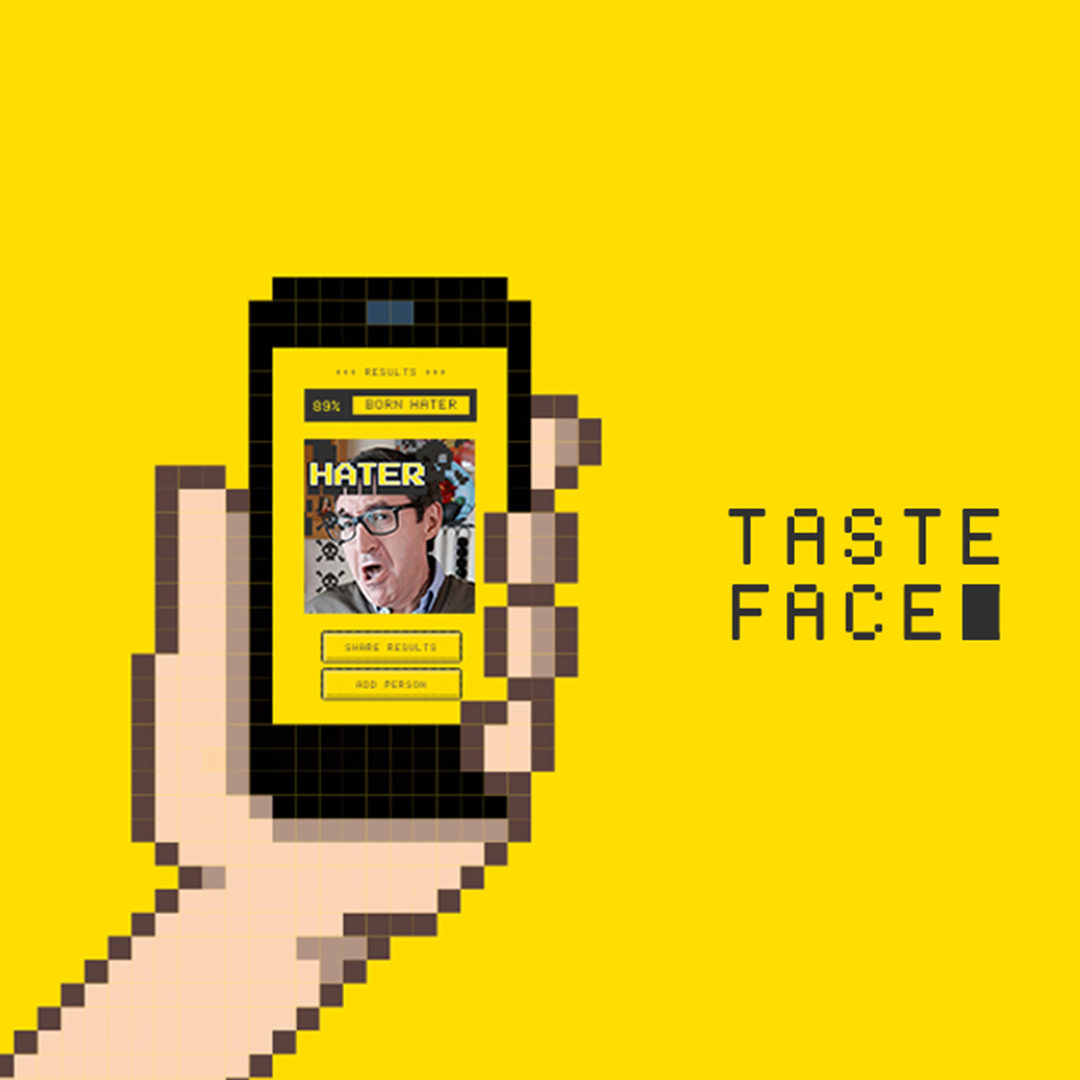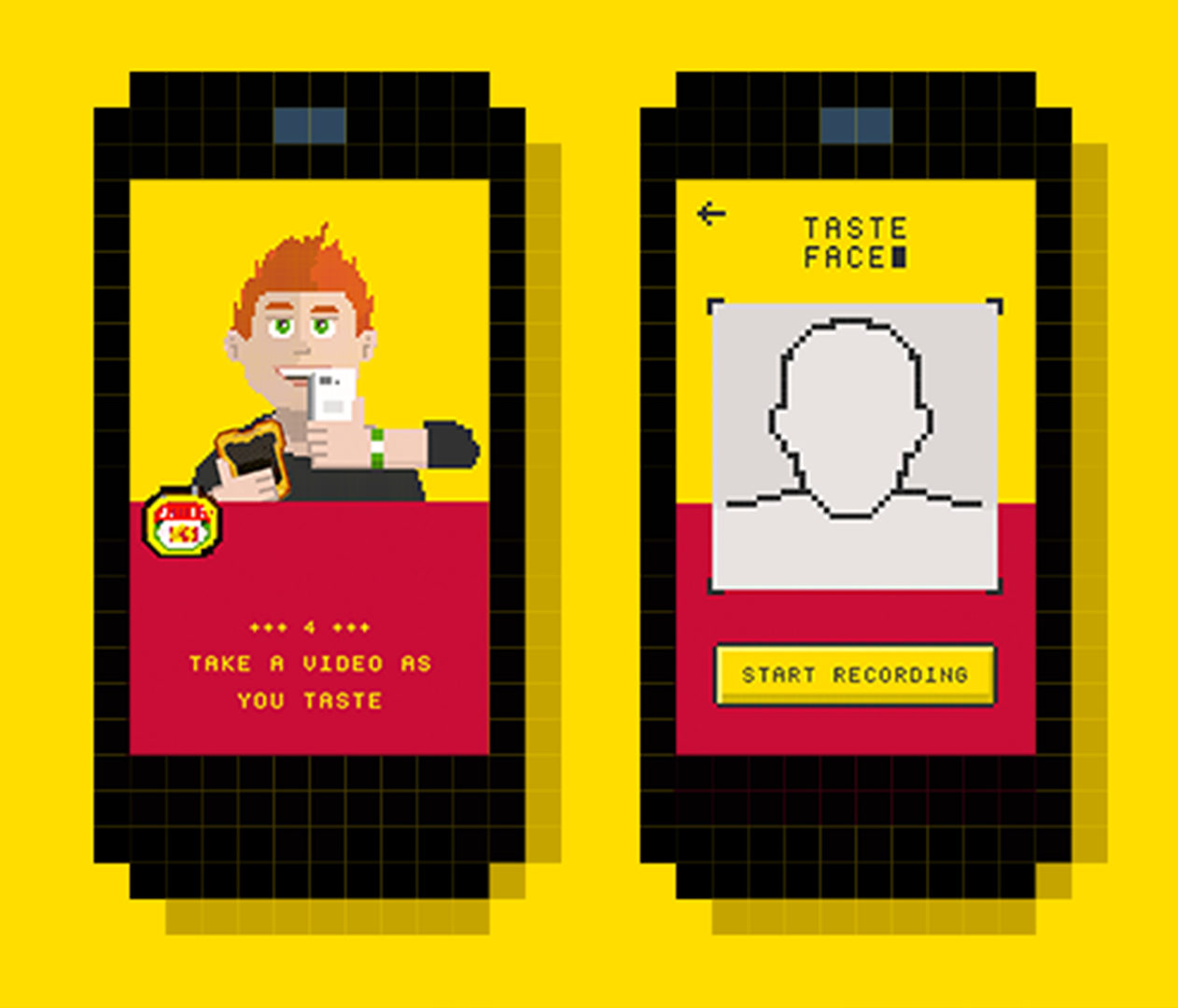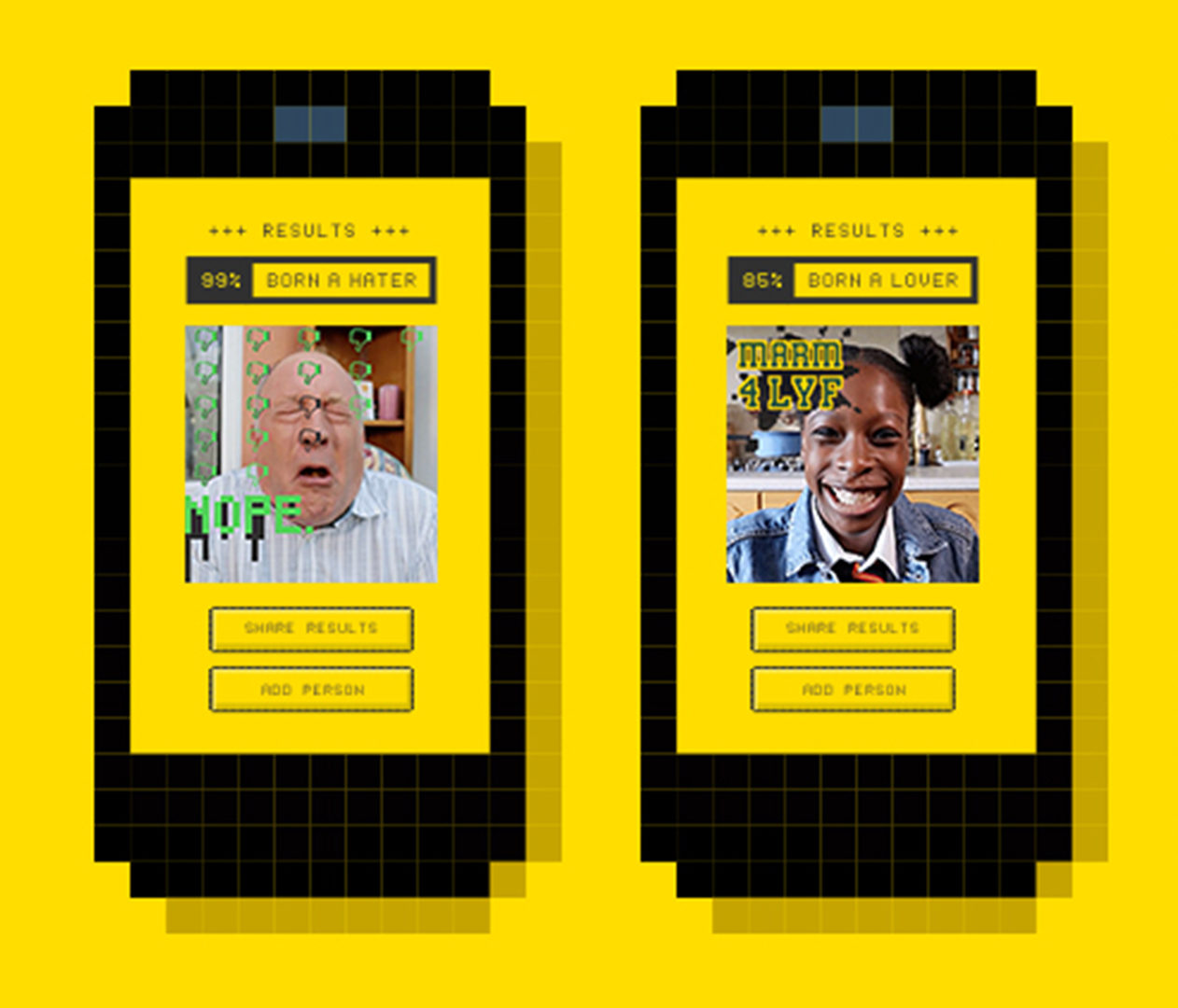Marmite Taste Face
2017
The challenge
“You either love it or hate it.” A phrase that’s been synonymous with Marmite since its creation.
In 2017, Marmite set out to discover the real reason why the spread has long divided the nation, and attract a younger generation of lovers.
The answer was, surprisingly, science. In partnership with leading boffins, they discovered ‘The Marmite Gene’. It turns out your genetics determine whether you’re born a lover, or a hater.
This ground-breaking news got lots of people talking about Marmite again, but our challenge was to get families up and down the country actually tasting it.

The approach
My role
I was the only UX designer on a team comprised of creatives, developers, a visual designer, and a project manager. I was responsible for marrying the creative concept with the tech in a way that was easy and fun for consumers.
I also worked with our tech lead to create the algorithm that turned the AI's facial expression measurements into the Lover vs Hater scale.
I was responsible for the set up and running of all user testing, including testing rigourous of the web app's ability to work across varying skin tones and lighting situations.
Activities
- User journey
- Process flow
- Wireframing
- User testing
- Functional documentation

Process flow for the Android version of the web app, taking into account device specific needs and permission flows.
Overcoming bias in facial recognition AI
During the project build phase, it came to my attention that facial recognition software often struggled to identify or analyse faces with darker skin tones.
This is a much larger (on-going) problem across all facial recognition software vendors, where the data used to train the AI is heavily biased towards white men.
In order to make sure TasteFace worked for everyone, regardless of race or ethnicity, I rigourously tested the build with users with a large range of skin tones across different lighting conditions. As a result, the instructional copy and the algorithm itself were tweaked to ensure the experience was fully inclusive.
The solution
The end result was an innovative sampling web app that invites people to try Marmite, and uses facial recognition technology to analyse their reaction to it.
It builds on the Microsoft Emotion API, that recognises facial expressions across a set of eight emotions: anger, contempt, disgust, fear, happiness, neutral, sadness and surprise. We built a bespoke algorithm to convert these eight emotions into a sliding scale of love and hate.
The web app also recognises the complexity of emotion between your love and hate for Marmite, rating it from 0 to 100%. At the end of the experience, test-takers are able to share a customisable reaction GIF to their own social channels.

The results
In its first week, TasteFace was visited 65k times, beating X-Factor to the top trending spot on Twitter.
550k
total number of visitors
2.5 minutes
average time spent on experience
+60%
impact on Marmite sales in Tesco during campaign
152k
number of samples distributed (50,000 within the first 6 weeks)
TasteFace allowed AnalogFolk to generate PR coverage over and above a traditional ATL campaign, receiving coverage from tech-focused blogs and drawing the attention of Microsoft’s AI Division, who expressed an interest in working with AnalogFolk as creative partners as a result of this activity.
Finally, this activity provided Marmite rich consumer data, allowing them to talk to lovers and haters with tailored messaging, and allowing AnalogFolk to use our initial findings to inspire further creative work.
Awards
- The Drum Marketing Awards 2018: Best Technology-Led Innovation of the Year
- Campaign magazine’s #2 Digital Innovation of 2017
- IPM COGS Awards: Grand Prix
- BIMA Awards 2018: Emerging Technology: Innovation
- The Webby Awards: 2018 Honoree

Case studies

DiageoNowVision and strategy

Scotch & SodaWebsite redesign